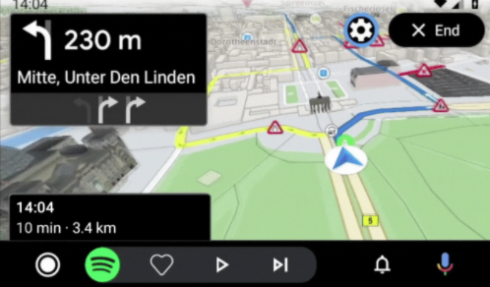
The Android for Cars app library has now been released into an open beta, enabling developers to design, develop, and test their navigation, parking or charging app on Android Auto.
In the testing phase, the app comes alive on the Desktop Head Unit (DHU), an emulator that lets users simulate a car infotainment display. The DHU now supports multiple screen sizes, displaying information in the instrument cluster, and simulating vehicles with touchpad input.
Additional details are available here.
Nim 1.4 released
The new release contains 900 which have not already been backported to previous versions.
New features include ORC, which is the existing ARC algorithm plus a cycle collector, and –gc:orc is the main new feature for this release.
Other changes include enhancements to the ‘std/jsonutils’ module, the ability to deserialize JSON arrays directly in ‘HashSet’ and ‘OrderedSet’ types and respectively to serialize those types to JSON arrays via ‘jsonutils.fromJson’ and ‘jsonutils.toJson’ procedures.
Additional details are available here.
Login VSI releases Login Enterprise 4.3
Login Enterprise 4.3 includes performance improvements and an enhanced API that enables customers to easily integrate Login Enterprise 4.3 into their existing automation and workflows.
Customers can drive Login Enterprise configurations via the new read/write APIs to automate acceptance, load, and continuous testing for VDI and Desktop environments – enabling tighter integration with automated desktop delivery systems.
The new release also offers increased performance for all testing use cases to allow users to rapidly deploy multiple testing scenarios within a single appliance, seamlessly ensuring performance and availability across the enterprise.
Additional details are available here.
HashiCorp announces Waypoint to build, deploy, and release applications across any platform
Waypoint enables developers to get their applications from development to production in a single file and deploy using a single command: ‘waypoint up.’
Waypoint supports Kubernetes, HashiCorp Nomad, Amazon ECS, Google Cloud Run, Azure Container Instances, Docker, Buildpacks, and more.
After deployment, Waypoint provides features such as logs, exec, and more to validate and debug any deployments.
Additional details are available here.






